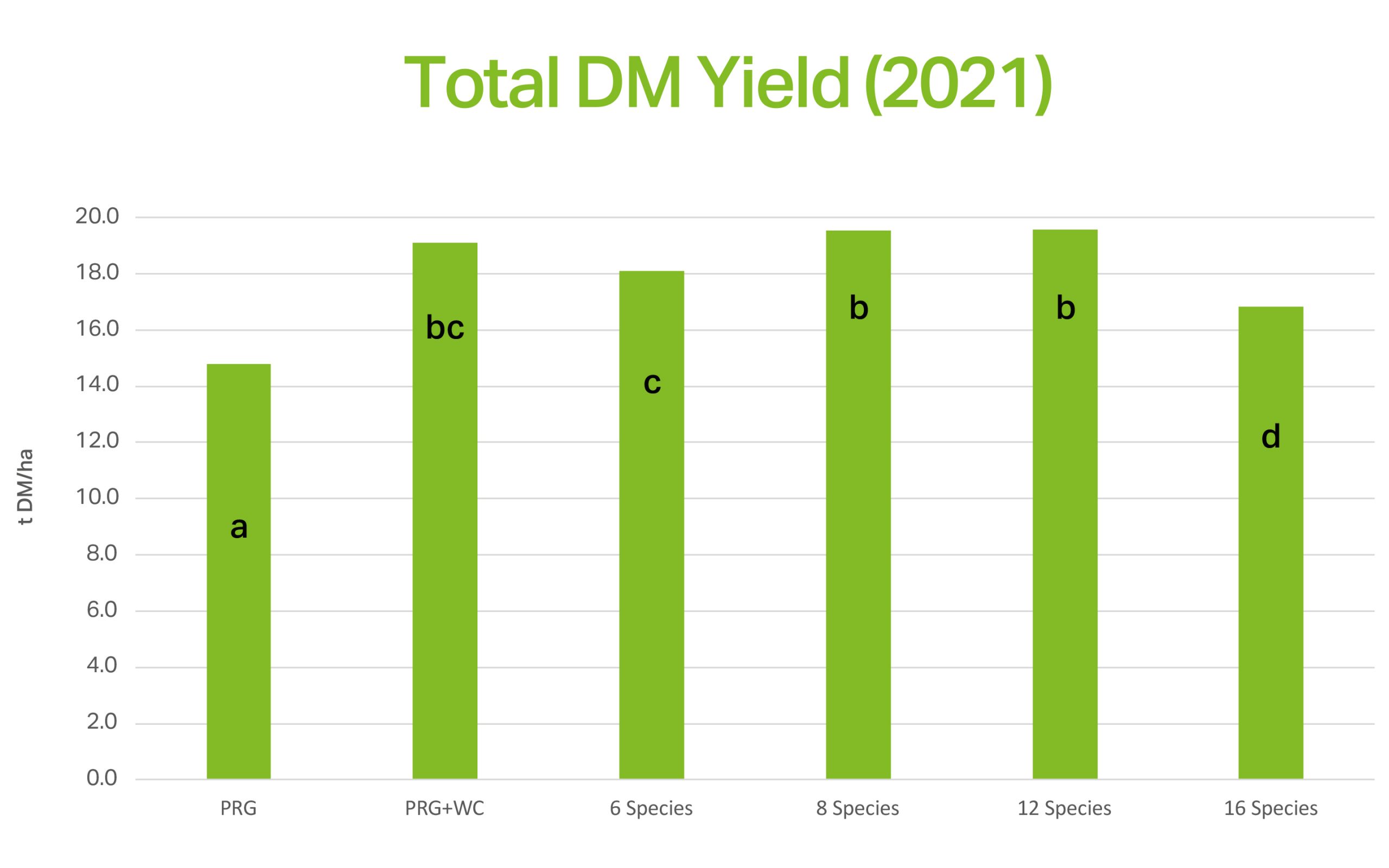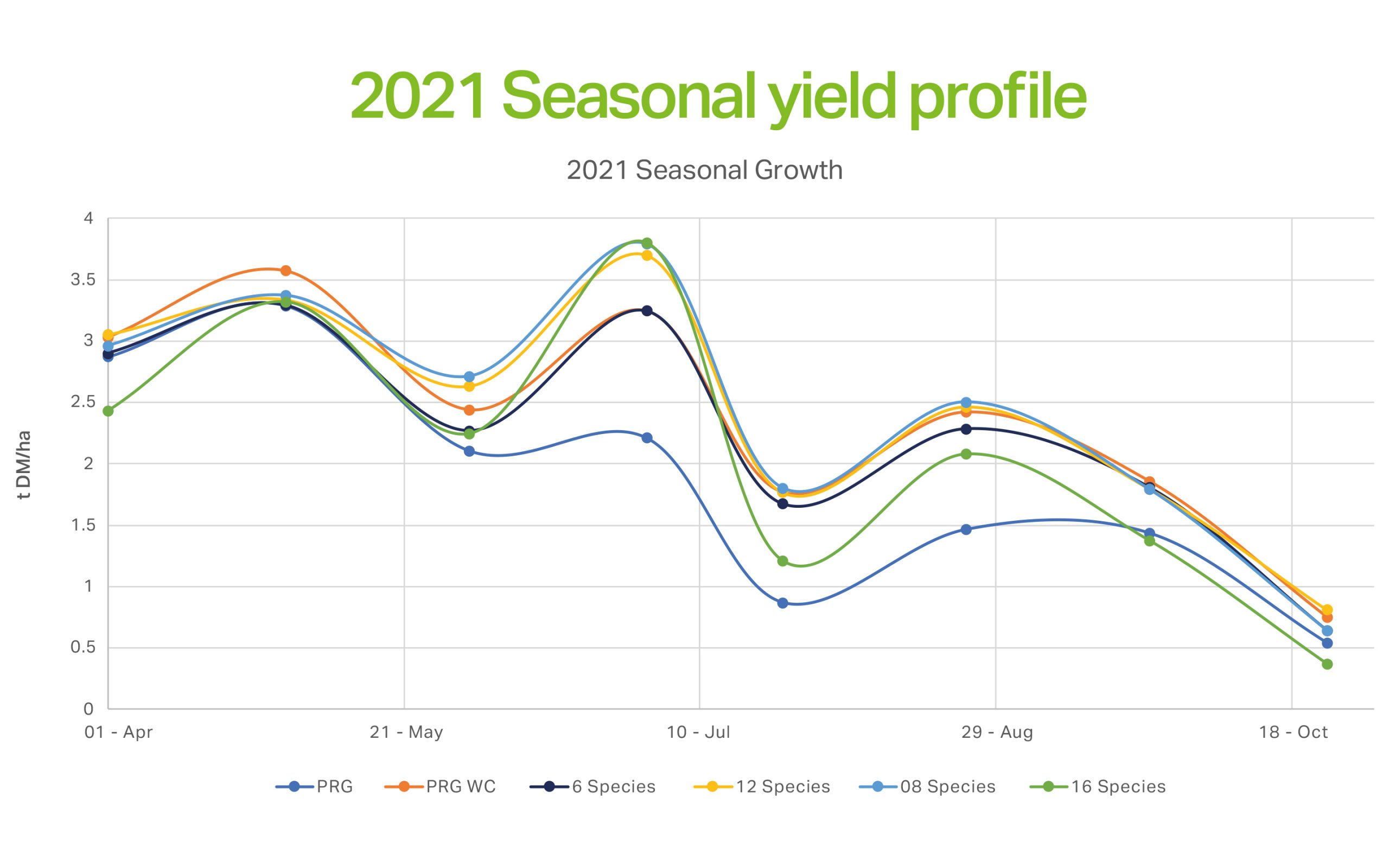Early results from Germinal Horizon farm-based trials show diverse multi-species swards containing climate-smart species bring production benefits.
Germinal’s technical trials manager Dr Joanna Matthews explains, “These results indicate how species interact and what each one brings to overall sward success. Our work in this area is creating a blueprint for farmers on establishment, grazing and management of multi-species.
"We’re committed to driving forward innovation, focusing on productive, profitable and climate-smart forage solutions at a time when farmers are facing a number of challenges.”
How does increased species diversity improve sward performance?
To put multi-species leys to the test, Germinal Horizon researchers have investigated sward performance by comparing six mixtures, ranging from perennial ryegrass alone to a mixture containing 12 species. The trials measured yield, dry matter (DM), metabolic energy (ME), protein and overall seasonal performance over two years.
Source: Germinal Horizon
All the mixtures trialled produced a good DM yield. The perennial ryegrass mixture yielded well at 14.8 t DM/ha with most of the multi-species mixes yielding around 19 t DM/ha.
Source: Germinal Horizon
It was a similar story with seasonal performance. Perennial ryegrass was important for sward establishment in spring, with the perennial ryegrass mix containing white clover and the six species mix delivering the most consistent performance across the season.
Spring establishment was more successful than in the autumn, due to the herbal elements needing warmer temperatures to germinate and grow. This is something for farmers to consider now as they pull together their reseeding plans.
Red and white clover not only helped with fixing nitrogen but proliferated over time and along with the perennial ryegrass, improved the quality of the sward. A detrimental effect was seen from higher fertiliser use on the diverse swards later in the season when the clovers were flourishing. This demonstrates nitrogen fertiliser isn’t required in such quantity when clover is present and inhibits the plant’s nitrogen-fixing ability.
Germinal’s work in this area is creating a blueprint for farmers on establishment, grazing and management of multi-species. We’re committed to driving forward innovation, focusing on productive, profitable and climate-smart forage solutions at a time when farmers are facing a number of challenges.
To learn more, watch our webinar: ‘Are multi-species swards right for your farm?’
Guide: How to establish multi-species swards


